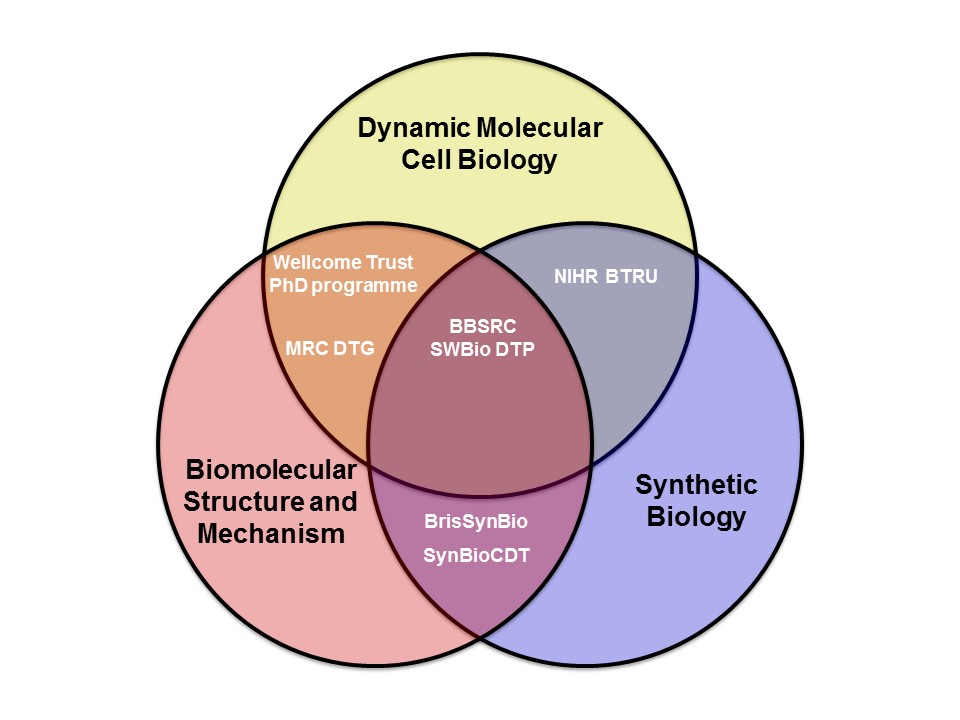Research
Biochemistry research at Bristol is driven by a commitment to fundamental studies of the molecular processes that underlie life itself. We believe studies of the intricate networks of biomolecules that become organised within cells to form a living organism are not just intrinsically fascinating, but are also essential to fully understand health, disease and effective therapeutics.
The Bristol flavour of biochemistry places particular emphasis both on discovering novel biological molecular processes and their quantitative analysis, such that these systems can be harnessed and modified in a predictive manner.
Research areas

A common theme throughout our research is that research questions are best addressed using multiple techniques applied across multiple dimensions, including both space (biomolecular and cellular dimensions) and time (molecular and cellular timescales). Using this unified approach, our extensive portfolio of interests has currently coalesced within these broad areas:
Dynamic Molecular Cell Biology
This grouping encompasses those of us who study how cells move within tissues, though studies of trafficking and cytoskeletal regulation within individual cells, and right down to the chemistry and dynamic properties of various cellular motors and editing machineries.
Biomolecular Structure and Mechanism
Our knowledge of cell and whole organism behaviour is underpinned by the understanding of the molecular basis for gene expression, the biochemical properties of their products and their interaction networks. A number of groups at the School of Biochemistry use a wide range of biochemical, biophysical and computational techniques to address the structure, chemistry and dynamic properties of different cellular devices. Our goal is to describe their molecular mechanism in isolation and in the wider context of the cell and beyond.
Synthetic Biology
Synthetic biology is an emerging, multidisciplinary field that aims to improve our understanding of biology through design and engineering; and to pave the way to engineering biological and biologically inspired systems predictably, reliably and responsibly. The hope and challenge is that, equipped with new knowledge and better computational and experimental tools, scientists will be able to design and engineer biological parts, devices and systems to tackle key issues facing humanity, including for example, the cost-effective production of new drugs, vaccines and drug-delivery systems. In addition, synthetic biology aims to lay the foundations for new application areas in biotechnology that we cannot imagine at present.
